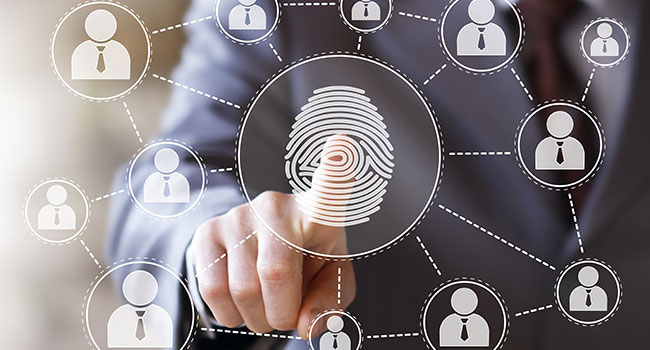
Is Your Access Control System Cyber Secure?
A cybersecurity breach in an access control system can cause damage far beyond the doors
- By Despina Stamatelos
- Dec 01, 2022
Access control systems exist to improve security for organizations, but if the hardware and software are not up to date, the system may be vulnerable to cybersecurity threats and other risks.
Many organizations are holding onto access control systems that date back 15 years or more, and only do minor patches and updates. While these older systems still allow employees to badge in and out, they may not offer great protection against cybersecurity threats.
Keeping an outdated system means, you not only miss new features that enhance operational efficiencies and scalability, but you may also expose your organization to new threats. Over time, integrations between systems can break or lack support. Cybercriminals have also discovered how to bypass or compromise some older hardware and software, which can put your organization at risk.
If a hacker breaches a network to gain access to sensitive data such as proprietary information or customers’ private information, the impact of a cybersecurity breach in an access control system can cause damage far beyond the doors. The average cost of a data breach in 2021 was estimated at $4.24 million, according to Statista.
Must-have Cybersecurity Features for Your Access Control System
When it comes to badging in and out, an aging system may appear to function well enough, but weaknesses in legacy access control systems can be exploited at every level: at the credential, the controller, and at the server or workstation.
With 64 percent of organizations worldwide experiencing at least one cyberattack per day, it is imperative to be prepared when it happens. Modern access control systems offer a range of new security features that make it much harder to gain unauthorized entry, along with tools to respond more quickly and effectively when targeted in a cyberattack.
Look for these must-have features to improve the security of your access control system:
- Encrypted credentials when using badges
- Encrypted hardware components, like readers and controllers, that also prevent physical tampering
- Encrypted databases that are stored separately from databases for running the access control system
- Restricted and role-based access to the software applications in the access control ecosystem.
- Secured connections between the different components of the access control system (this is a feature that is often overlooked)
- Robust breach notification functionality for timely responses in the event of a breach
- Partners and suppliers that you can rely on to help you defend against future cyber threats
Choosing the Right Vendor
It is a good idea to think proactively when it comes to evaluating the risks of deploying technologies. Look for a supplier who has a proven security record of accomplishment, guaranteeing that the data is protected through cybersecurity best practices and that the system is only used for its designed use.
You might think that a proprietary solution is more secure because there are fewer interdependent components to integrate into your access control solution. However, often a better solution is to choose a unified, open-architecture software platform that supports a wide variety of best-of-breed hardware. A platform of this type, built with cybersecurity in mind, allows you to take advantage of cutting-edge technology while also remaining up to date with cybersecurity measures. It also helps with system scalability. You can select the very best hardware for your needs and add or remove components, as your business needs change.
A unified platform is also more resilient to emerging threats. Since all systems operate on one platform, when software is upgraded or patched, the process is quick and easy — no need to worry about compatibility issues. If a problem with a particular piece of hardware becomes known, you can also remove or upgrade just the affected components without having to replace your whole system.
Eight Ways to Improve the Cybersecurity of Your Access Control System
- Upgrade your system to a modern system with enhanced cybersecurity measures. Older systems will not address today’s threats.
- Use secure, smart credentials or biometrics, and the latest communication protocols to secure data sent between appliances and networks.
- Provide training to employees to educate them about cybersecurity best practices and ensure they are prompted to update passwords.
- Use an identity management system to ensure users can only access areas and data that relate to their role and current employee status.
- Create separate local networks for devices that store or share highly sensitive information, so that it cannot be accessed from the regular network.
- Choose a security provider who demonstrates compliance with established security control frameworks.
- Ensure access control systems use proven data encryption methods as well as multi-step authentication.
- Work with a partner that has a dedicated team to monitor cyber threats, and ensure software is updated, and patched.
A modern, unified approach to access control can help organizations stay more resilient to cyber threats, while also delivering more value than simply locking and unlocking doors.
This article originally appeared in the November / December 2022 issue of Security Today.